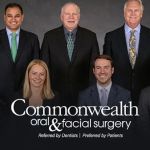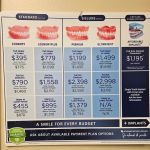Types of Mouth Ulcers
Mouth ulcers come in various forms. The most common ones include canker sores (aphthous ulcers), oral lichen planus, leukoplakia, erythroplakia, oral thrush, and in rare cases, oral cancer. Canker sores are often of unknown cause and can be triggered by minor trauma or stress. Oral lichen planus is an immune response and affects mainly women over 50. Leukoplakia results from excessive cell growth and can be caused by habits like smoking. Erythroplakia, often precancerous or cancerous, is associated with tobacco use. Oral thrush is a fungal infection that occurs after antibiotic treatment or when the immune system is weakened. Oral cancer lesions may present as persistent mouth sores or ulcers.
Symptoms and Causes of Mouth Ulcers
Mouth ulcers typically have red edges and a white, yellow, or gray center. They can cause swelling, increased soreness when brushing teeth, and pain when consuming spicy, salty, or sour foods. Causes range from minor tissue injury during dental work or accidentally biting the cheek or tongue, to hormonal changes, stress, lack of sleep, allergic reactions, and underlying health conditions such as vitamin deficiencies, autoimmune diseases, and viral, bacterial, or fungal infections. Unlike cold sores, mouth ulcers are not contagious.
Diagnosis and Tests for Mouth Ulcers
A healthcare provider can diagnose mouth ulcers through a visual examination. In severe cases or when a specific health condition is suspected, blood tests might be ordered.
Management and Treatment Options
While most mouth ulcers heal on their own, medications may be prescribed to ease discomfort. Common treatments include antiseptic gels or mouth rinses, steroid ointments, and immunosuppressants in severe cases. At home, one can relieve symptoms by drinking plenty of water, maintaining good oral hygiene, rinsing with warm saltwater or a hydrogen peroxide-water mixture, avoiding certain foods, and using over-the-counter topical anesthetics.
Prevention of Mouth Ulcers
Although it's impossible to completely prevent mouth ulcers, reducing the risk is possible. This can be achieved by brushing and flossing teeth regularly, using a soft-bristled toothbrush, eating a healthy diet, and visiting the dentist for regular checkups and cleanings. Treating underlying conditions can also prevent ulcers from recurring.
Outlook and Prognosis
In most cases, mouth ulcers heal within 10 to 14 days. However, if a mouth sore persists for more than three weeks, it's advisable to consult a healthcare provider. They can recommend appropriate treatment and ensure the ulcer is not a sign of a more serious underlying issue.
Living With Mouth Ulcers
It's essential to contact a healthcare provider if mouth sores last for three weeks or longer, new sores appear before old ones heal, ulcers affect the outer part of the lips, pain doesn't improve with medication, there are unusually large ulcers, the sores are painless, or if there is fever or diarrhea. If one experiences severe or frequent mouth ulcers, it's helpful to ask the provider about the reasons for recurrence, underlying conditions causing them, ways to reduce the risk, recommended medications, and necessary diet or lifestyle changes.
Additional Common Questions
The difference between a mouth ulcer and a canker sore is that a mouth ulcer is a broad term encompassing any sore in the mouth, while a canker sore is the most common type. Canker sores can be caused by deficiencies but often have no known cause and may recur. A mouth ulcer that lasts longer than three weeks could indicate a more serious underlying condition. Mouth ulcers are usually not a sign of cancer, but persistent ones could be. Most mouth ulcers are harmless but cause discomfort and should heal within two weeks. If not, it's time to see a healthcare provider.
In conclusion, mouth ulcers are a common occurrence that can cause discomfort but are often manageable. Understanding the types, causes, symptoms, diagnosis, treatment, prevention, and prognosis is crucial for dealing with them effectively. If any concerns persist or worsen, seeking professional medical advice is always the best course of action.




 Dental Crown in an Hour: Naples4.0 (121 review)
Dental Crown in an Hour: Naples4.0 (121 review) Meyer & Dana Orthodontics4.0 (315 review)
Meyer & Dana Orthodontics4.0 (315 review) East Brunswick Pediatric Dentistry4.0 (525 review)
East Brunswick Pediatric Dentistry4.0 (525 review) Above & Beyond Dentistry & Implants4.0 (540 review)
Above & Beyond Dentistry & Implants4.0 (540 review) Commonwealth Oral & Facial Surgery Brandermill4.0 (57 review)
Commonwealth Oral & Facial Surgery Brandermill4.0 (57 review) Affordable Dentures & Implants4.0 (757 review)
Affordable Dentures & Implants4.0 (757 review) The Importance of Oral Health Education During Pregnancy for a Healthy Pregnancy
The Importance of Oral Health Education During Pregnancy for a Healthy Pregnancy Best Tips for Brushing Your Teeth Properly for Healthy Gums: Essential Techniques for Oral Health
Best Tips for Brushing Your Teeth Properly for Healthy Gums: Essential Techniques for Oral Health Why Skipping Dental Checkups Can Lead to Bigger Oral Health Problems
Why Skipping Dental Checkups Can Lead to Bigger Oral Health Problems Advantages of Porcelain Dental Restorations
Advantages of Porcelain Dental Restorations How Can Diabetes Cause Tooth and Gum Problems? Preventing and Managing Oral Health Issues
How Can Diabetes Cause Tooth and Gum Problems? Preventing and Managing Oral Health Issues Healthy Habits for Promoting Good Oral Health and Hygiene: Tips for a Healthy Smile
Healthy Habits for Promoting Good Oral Health and Hygiene: Tips for a Healthy Smile